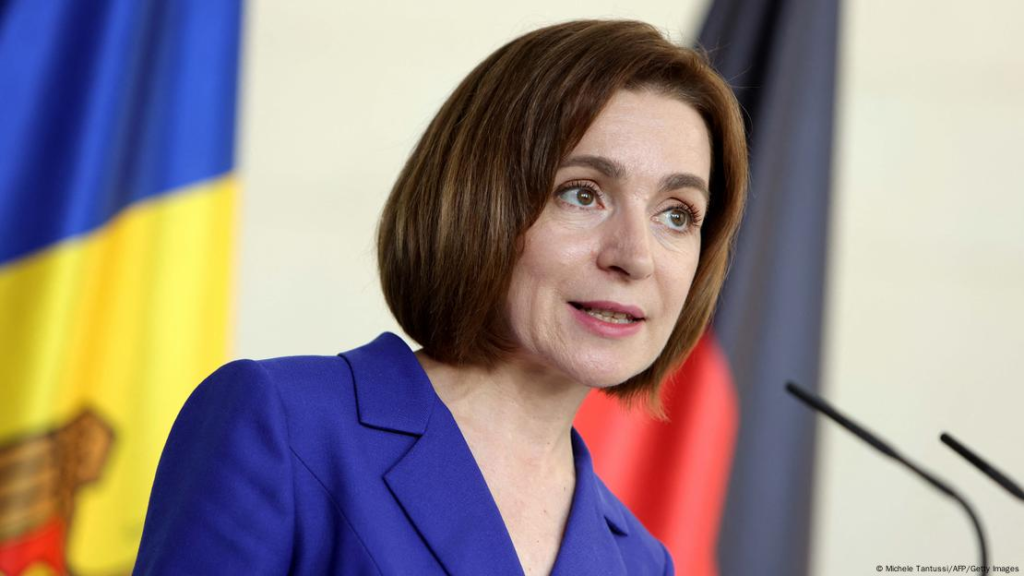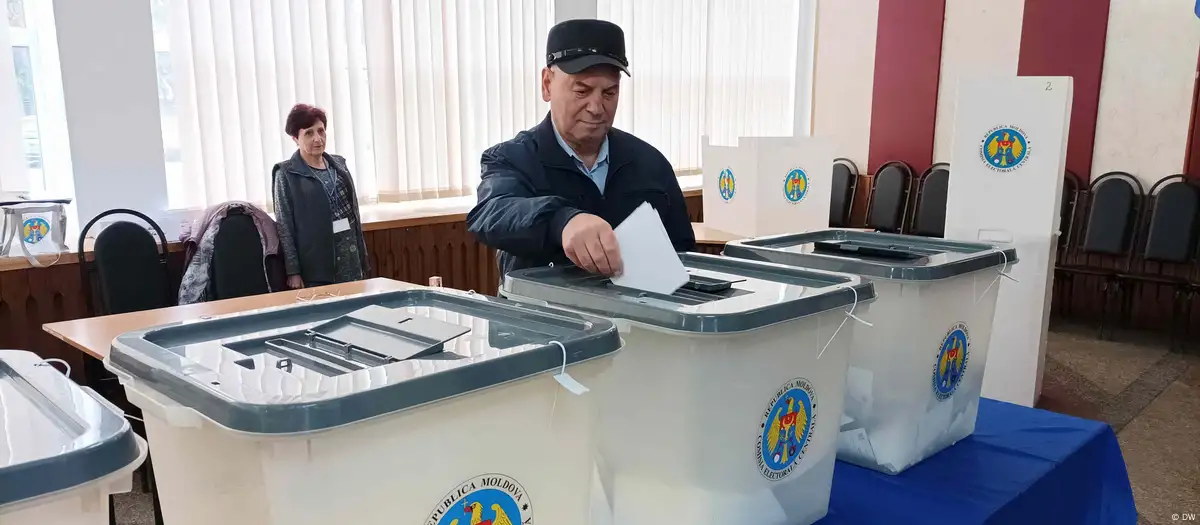Earlier preliminary results had indicted a majority “no,” but a surge of ballots from abroad provided last-minute support for EU membership. The referendum comes amid allegations of Russia-backed voter fraud
With more than 99% of the votes counted, the “yes” vote for EU membership in Moldova’s referendum was slightly ahead at 50.28% — only 8,000 votes more than the anti-EU camp.
Earlier, Moldovans appeared to have had rejected plans for the former Soviet republic to add its goal of joining the EU to the constitution, preliminary results from 70% of ballots in the country’s referendum showed on Sunday evening.
However, ballots from Moldovans living abroad were counted towards the end, giving the “yes” camp a last-minute push.
A largely agricultural country of around 2.5 million people, Moldova has sought to cut ties with Moscow and move closer to the EU since Russia’s invasion of neighboring Ukraine in 2022.
The former Soviet republic began EU membership talks in June.
Ahead of the referendum, surveys showed around 55% of Moldovans would supported the move, while 34% were against it.
The turnout was close to 50%, far higher than the 33% needed for the result to be valid.
Pro-Russian parties had urged people to vote “no” or boycott the vote altogether.

Pro-EU President Sandu alleges ‘vote-buying’ scheme
Responding to the early results, Moldova’s pro-EU president, Maia Sandu, accused “criminal groups” of engaging in voting fraud.
“Moldova has faced an unprecedented assault on our country’s freedom and democracy, both today and in recent months,” Sandu told supporters in the capital, Chisinau.
She said that these groups backed by foreign forces had tried to “undermine [the] democratic process” by trying to to buy up to 300,000 votes.
An EU spokesperson said Moldova’s referendum on joining the European Union happened with “unprecedented interference” by Russia or its proxies.
“Moldova was facing really unprecedented intimidation and foreign interference by Russia and its proxies ahead of this vote,” the spokesperson said.
Meanwhile, the Kremlin complained of anomalies in Moldova’s count, saying there had been “a hard to explain rate of increase of votes in favor of Sandu and in favor of the referendum.”
Sandu takes narrow lead in the presidential election
Meanwhile, Sandu was closer to a second term in office, after she came ahead in the in the first round of presidential elections.
With more than 90% of the ballot counted, Sandu was short of an absolute majority at around 39% of the vote.
If the result is confirmed, the vote will go to a runoff in two weeks.
Her closest competitor Alexandr Stoianoglo came second, seeming to receive 28% of the vote.
Turnout for the presidential election stood at more than 51%.
Who else is vying for the presidency?
Pro-Western Sandu competed against 10 other presidential candidates — including some advocating closer ties with Russia.
Although the 52-year-old was the clear favorite to win, recent polls suggest she only has around 36% support.
Stoianoglo, a 57-year-old former prosecutor supported by the pro-Russian Socialists, polled at just 9% ahead of the vote.
Renato Usatii, a 45-year-old former mayor of Moldova’s second-largest city Balti, was predicted to win 6.4% of the vote, polls conducted before the election said.
Should no candidate win a majority, the vote will head to a second round on November 3.
Votes marred by allegations of Russian interference
Ahead of Sunday’s election, Moldovan authorities said they had uncovered a massive vote-buying scheme allegedly involving millions of dollars from Russia.
Police have accused Ilan Shor, a fugitive businessman and former politician living in Russia, of trying to pay voters to back a specific presidential candidate and vote “no” in the EU referendum.
Shor, who was convicted in absentia of fraud last year, is under Western sanctions and denies wrongdoing.
Police warned this week that up to a quarter of ballots could be tainted by Russian cash.
Authorities also said they had uncovered a plan that involved hundreds of people being taken to Russia to be trained to stage riots and create “mass disorder” in Moldova.
Sandu has repeatedly issued warnings about Russian efforts to meddle in the vote — allegations Moscow has rejected.








